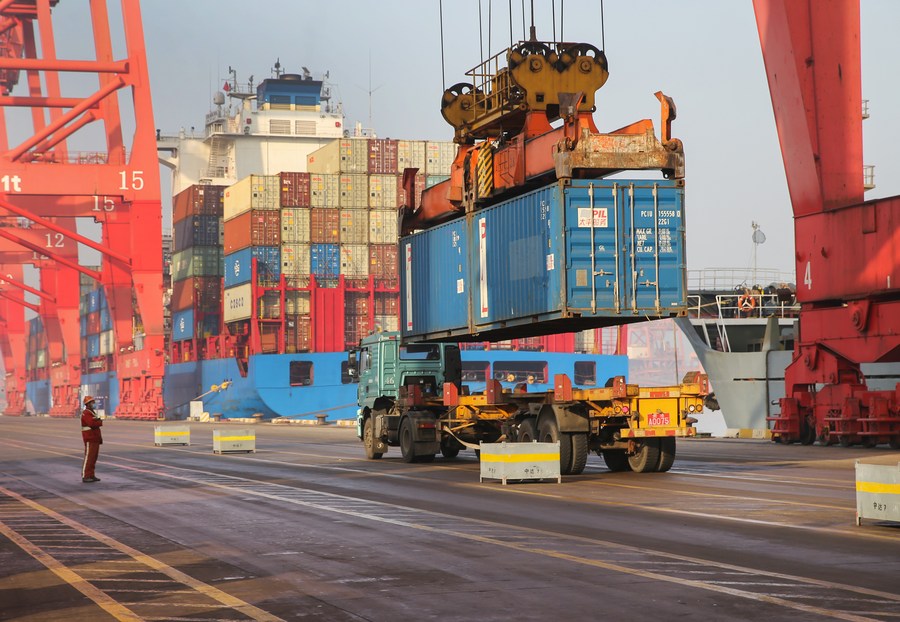Policies must keep economy steady


The role of macroeconomic policies must be brought into full play to keep the economy on a steady course, with efforts to boost smaller businesses and shore up weak links to improve the quality of growth, a political advisor said.
Hu Xiaolian, chairwoman of the Export-Import Bank of China and also a member of the National Committee of the Chinese People's Political Consultative Conference, expects that more policies will be rolled out in key areas to ensure stable growth, a priority of China's economic agenda this year.
"As a CPPCC member who serves on the Committee on Economic Affairs and works in the financial sector, I expect this year's macroeconomic policies to work in a way that helps to improve China's economic structure, address risks and deepen reforms, as this will be crucial for maintaining stability while pursuing growth, the overarching goal set for 2022 at the Central Economic Work Conference," Hu said in an exclusive interview with China Daily before the kickoff of the two sessions, the annual sittings of China's national legislature and the top political advisory body.
She underscored the importance to front-load macroeconomic policies in a forward looking manner to maximize their effect in maintaining stability, spurring growth and tackling downward pressure.
In particular, monetary policies should be kept stable overall with enhanced predictability, and be flexible and appropriate to keep liquidity reasonably ample.
"Policy making will be a delicate balancing act. On the one hand, policy makers need to take care of the weak market demand with regard to small and medium-sized enterprises, or SMEs, and fixed asset investment. On the other, they must keep an eye on CPI, the inflationary expectation," said Hu, also a former vice-governor of People's Bank of China, China's central bank.
"More emphasis is needed on boosting the confidence of market players and anchoring expectations across society."
The central government has introduced forceful measures to meet the needs of micro, small and medium-sized businesses for financing, particularly over the past weeks and months, when the economy is faced with three-fold pressure of contracting demand, a supply slump and weakening market expectations, which weighs on small businesses' recovery.
A decision made on Monday at the 24th meeting of the central committee for deepening overall reform of the Communist Party of China Central Committee gives the market a much expected shot in the arm.
It confirmed further efforts to promote financial inclusion and build a sound financial system that is highly adaptable, competitive and inclusive, to better meet diverse financial needs of the people and the real economy.
The most recent State Council's executive meeting on Feb 15 also urged an increased amount of incentive funding from the PBOC to step up inclusive lending to micro and small businesses, and enable a steady fall in their overall financing costs.
In the interview with China Daily, Hu said that to ensure steady growth, a key step would be optimizing the economic structure. While money supply and aggregate financing shall be basically in step with nominal GDP growth, additional support shall be extended to micro and small businesses, sci-tech innovation and green development.
"Only through shoring up these weak links will we be able to secure a balanced and resilient economy," she said.
Noting that China is to tackle emerging challenges and risks in both immediate and long terms, and that international market volatility might aggravate the disruptive impact of risks, Hu said efforts in forestalling and fending off risks remain crucial to ensure stability.
"It is important to always remain on high alert and well-prepared for risks that come our way. We should bear in mind that risk prevention and mitigation is vital to development and security, and get a head start," she noted.




































